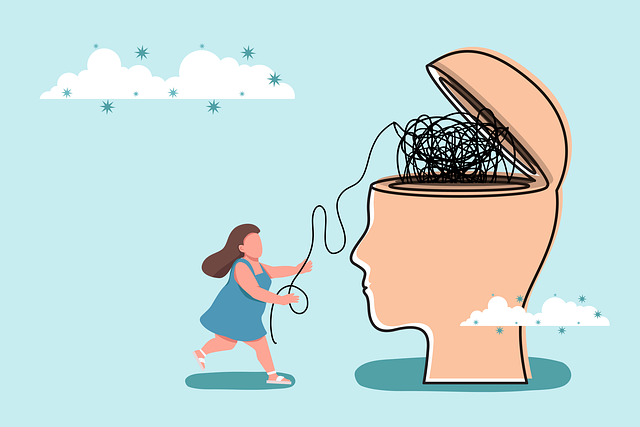The text emphasizes the need for holistic mental health support systems, highlighting the importance of crisis intervention alongside sustained public awareness campaigns to reduce stigma. Key strategies include expanding access to therapy for adults by addressing cost barriers, insurance gaps, and limited availability through online platforms, as well as culturally sensitive practices. Educational campaigns raise awareness about mental health issues and dispel stigma, encouraging help-seeking behaviors. Initiatives like the Mental Wellness Podcast Series Production combine evidence-based practices with psychological testing to empower individuals and improve access to quality mental healthcare for adults.
Mental health advocacy initiatives play a pivotal role in shaping public perception and access to support. This article explores diverse strategies to improve mental well-being, focusing on psychological testing for adults as a powerful tool for unlocking insights and guiding tailored therapy. We delve into accessible therapy options, highlighting their critical role in bridging gaps and reaching those in need. Additionally, we examine successful campaigns aimed at raising awareness and reducing stigma surrounding mental health, showcasing the profound impact of advocacy initiatives.
- The Current State of Mental Health Advocacy
- Adult Psychological Testing: Unlocking Insights and Support
- Accessible Therapy: Bridging the Gap for Adults in Need
- Educational Campaigns: Raising Awareness and Dispelling Stigma
- Success Stories: Measuring the Impact of Advocacy Initiatives
The Current State of Mental Health Advocacy

The current state of mental health advocacy is marked by a growing recognition of the need for comprehensive support systems. While significant strides have been made in recent years, there remains a pressing need to bridge the gap between understanding and access to quality care. Many individuals still face barriers such as limited availability of specialized services, high costs of therapy for adults, and lack of psychological testing options tailored to their unique needs.
Crisis intervention guidance plays a crucial role in immediate support, but sustained efforts are required to foster public awareness campaigns development and Mental Illness Stigma Reduction Efforts. By increasing accessibility and normalizing conversations around mental health, we can ensure that those in need receive the appropriate therapy for adults and the resources required to navigate their journeys effectively.
Adult Psychological Testing: Unlocking Insights and Support

Psychological testing for adults plays a pivotal role in mental health advocacy by providing valuable insights and facilitating tailored support. These assessments go beyond basic diagnoses, offering a comprehensive understanding of an individual’s cognitive functions, emotional states, and behavioral patterns. By unlocking these insights, professionals can design effective therapy plans for adults—be it cognitive-behavioral therapy (CBT), psychotherapy, or specialized interventions like trauma support services.
The process often involves a series of evidence-based tools and measures designed to assess various aspects of mental wellness. This includes evaluating symptoms, cognitive abilities, personality traits, and interpersonal dynamics. The data collected enables healthcare providers to gain a nuanced view of each patient’s unique challenges and strengths, ensuring personalized care. Moreover, integrating psychological testing into mental health initiatives can enhance the overall effectiveness of services, as evidenced by successful Mental Wellness Podcast Series Production collaborations with industry experts. Similarly, Healthcare Provider Cultural Competency Training programs have shown improved outcomes when psychological assessments are integrated into care plans.
Accessible Therapy: Bridging the Gap for Adults in Need

In recent years, there has been a growing recognition of the importance of accessible therapy for adults seeking psychological support. Many individuals face barriers to receiving mental health care, such as cost, lack of insurance coverage, or limited availability of specialized services in their communities. To address these challenges, innovative initiatives have emerged, focusing on making therapy more inclusive and affordable. One effective strategy is the integration of online therapy platforms, which allow people to access counseling sessions from the comfort of their homes. This shift towards digital mental health services has significantly improved accessibility, especially for those in rural areas or with limited mobility.
Additionally, cultural sensitivity in mental healthcare practice plays a pivotal role in bridging the gap for adults in need. By incorporating conflict resolution techniques and addressing cultural nuances during therapy, professionals can create safe and supportive environments tailored to diverse populations. This personalized approach not only enhances the effectiveness of treatment but also encourages individuals to seek help without fear of judgment or misunderstanding. The ultimate goal is to ensure that everyone, regardless of their background, has equal opportunities to receive the psychological testing and anxiety relief they deserve.
Educational Campaigns: Raising Awareness and Dispelling Stigma

Educational campaigns play a pivotal role in advocating for mental health by raising awareness and dispelling stigma. Through various mediums such as social media, workshops, and community events, these initiatives aim to educate folks about common mental health issues, their causes, and available treatments like therapy for adults. By providing accurate information, they help combat misconceptions and encourage individuals to seek professional support without fear of judgment.
Moreover, these campaigns often focus on coping skills development and communication strategies, empowering people to manage their well-being effectively. By fostering open conversations about mental health, they create a supportive environment where individuals feel comfortable discussing their struggles and seeking help through psychological testing when needed.
Success Stories: Measuring the Impact of Advocacy Initiatives

Mental health advocacy initiatives often carry significant weight in shaping public perception and access to support systems. Success stories within this domain are numerous and varied, each highlighting unique approaches that have led to profound improvements in individuals’ lives. For instance, consider a non-profit organization that pioneered an innovative Mental Wellness Podcast Series Production, making therapy for adults more accessible through digital media. This initiative not only reached a diverse audience but also facilitated open conversations about mental health, leading to increased awareness and reduced stigma.
Additionally, programs focusing on Stress Reduction Methods, such as Mindfulness Meditation, have proven effective in alleviating symptoms of anxiety and depression. Psychological testing played a pivotal role in these success stories, providing data-driven insights into the effectiveness of various interventions. By combining therapy for adults with evidence-based practices, advocacy groups are transforming lives one step at a time, paving the way for broader systemic changes in mental healthcare accessibility and quality.
Mental health advocacy initiatives, ranging from psychological testing to accessible therapy and educational campaigns, play a pivotal role in improving mental well-being. These efforts not only raise awareness but also dispel stigma, ultimately leading to better support systems for adults seeking treatment. By harnessing success stories and measuring their impact, we can continue to enhance and expand these initiatives, ensuring that everyone has access to the psychological testing and therapy they need.













